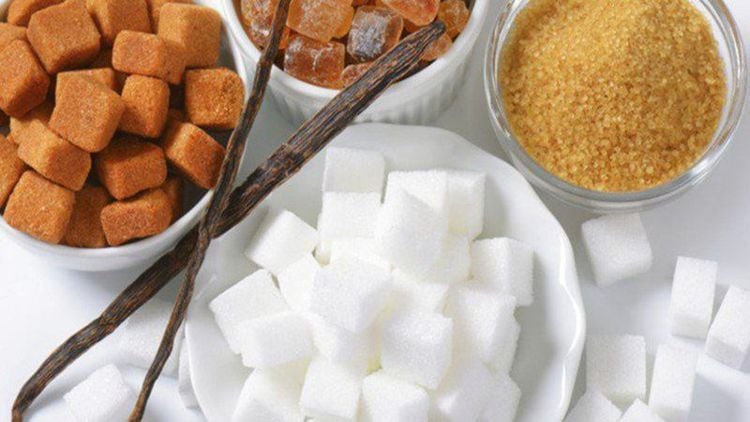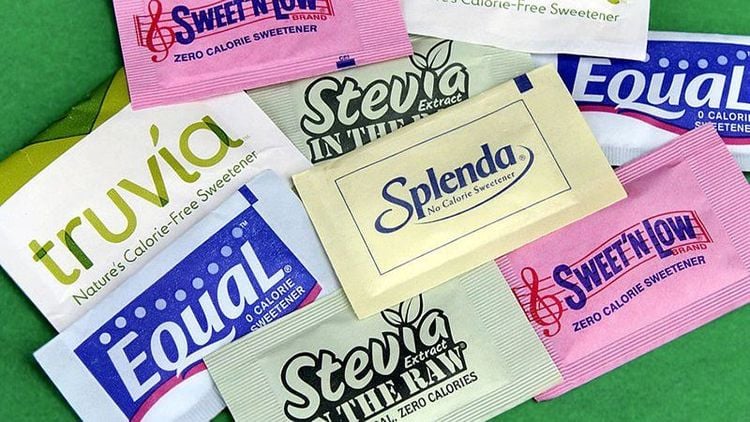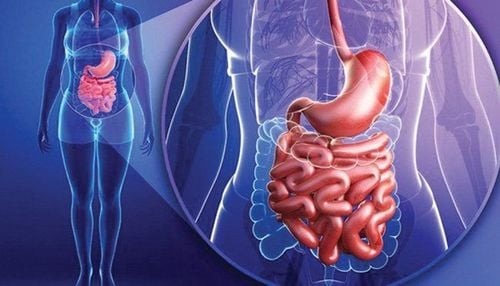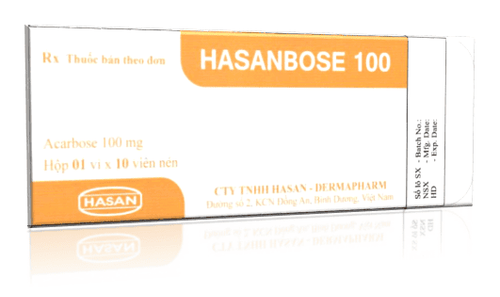This is an automatically translated article.
The article was written by Doctor Phan Nguyen Thanh Binh - Department of Pediatrics - Neonatology, Vinmec Central Park International General HospitalSynthetic sweeteners (or artificial sweeteners) are very popular, seen as sugar alternatives for patients with diabetes or weight loss diets. However, many people are not aware of the harmful effects of these chemicals on health.
1. What are synthetic sweeteners?
Synthetic sweeteners (also known as artificial sweeteners, chemical sugars) are substances not found in nature, mainly synthesized from organic and inorganic substances in the plant: usually have a sweet taste. very high compared to the diameter of sucrose (natural sugar extracted from sugarcane, sugar beet) which cannot be converted, so there is no nutritional value; It is often used to create sweetness in the treatment of overweight or diabetic patients.
To date, the US Food and Drug Administration (FDA) has approved six types of artificial sweeteners (saccharin, acesulfam K, aspartame, sucralose, advantame, neotame) and two types of natural sweeteners (steviol glycosides) , SGFE ) for use in food. Types are allowed to be used in food processing with maximum limits and clear regulations. Aspartame is present in more than 6,000 foods worldwide, and about 5,500 tons are consumed each year in the United States alone. However, on the market today, there are still many sweeteners based on the chemical sodium cyclamate - a chemical sugar that is not on the list of food additives approved by the Ministry of Health. used in Vietnam, because this chemical sugar can cause liver cancer, lung cancer, fetal malformations, influence genetic factors... The metabolites of cyclamate such as mono and di- cyclohexylamine is more toxic than cyclamate, which has been shown to cause cancer in rats.

2. Do synthetic sweeteners have nutritional value?
Synthetic sweeteners have almost no nutritional value, do not contain calories because they are not broken down during digestion into natural sugars such as glucose, fructose and galactose, which are used for energy. or converted to fat.
Non-nutritive sweeteners have various by-products that are not converted to calories. For example, aspartame undergoes a different metabolism without forming simple sugars that the body can use. Others such as saccharin and sucralose are not broken down at all, but are instead absorbed directly into the bloodstream and excreted in the urine.
In theory, these sweeteners appear to be a "better" alternative to sugar for diabetics due to their fact that they don't provide sugar.

3. How to identify sweeteners in food?
Chemical sugars are easily soluble in water, odorless and colorless, making it difficult to detect. However, we can still recognize them when we taste this sugar. If you eat a sharp, slightly bitter taste or after eating or drinking water, there is always a sweet taste in your mouth, then you have used foods containing chemical sugar. If you eat sweeteners often or in large quantities, it can cause headaches, ringing in the ears, feeling dizzy or possibly allergic reactions.
4. What are the harmful effects of artificial sweeteners?
There is growing evidence that artificial sweeteners can alter intestinal metabolic processes. For example, saccharin has been found to alter the type and function of beneficial bacteria in the gut, and aspartame reduces the activity of an intestinal enzyme. If you regularly eat a lot of chemical sugar, it can cause impaired digestive function, irritate the intestinal lining, make it difficult to absorb nutrients, and can even affect kidney function.

More dangerous, if you use too much chemical sugar, it will inhibit the growth of children, cause many diseases or cause malnutrition, may cause the brain to develop abnormally... In addition, function Detoxification of the liver and kidneys in children is impaired, so these chemicals will accumulate. In children, chemical sugar can interfere with the ability to absorb nutrients, causing children to grow slowly, anorexia.
Some sweeteners can affect the brain to alter taste perception and imbalance in hormone production. For example, Sucralose reduces the activity of the amygdala, the part of the brain involved in taste perception. Aspartame alters the body's natural production of hormones, increasing both appetite and cravings for sweets.
Sweeteners can reduce the ability to control energy consumption, increasing metabolic disorders. Many people think that drinking a diet drink several times a week is still much better than drinking a sugary one, so you should indulge in products that use sugar substitutes such as drinks, salads, biscuits, yogurt with sweetener.
Artificial sweeteners are often seen as a safe substitute for sugar, but in fact there is a lot of evidence that overuse is associated with a higher risk of metabolic syndrome which includes type 2 diabetes.
Please dial HOTLINE for more information or register for an appointment HERE. Download MyVinmec app to make appointments faster and to manage your bookings easily.














